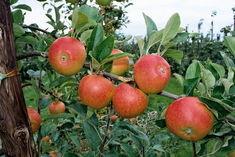
English Apples & Pears (EAP) is powering ahead with a secondary launch of the English apple season this month, as it highlights three of its newest varieties as “designer apples” to the consumer press.
The industry’s representative body has been carrying out one-to-one interviews and successful tastings with short-lead consumer media, such as the weekend supplements of the national dailies and Sunday titles.
The campaign focuses on Cameo, Kanzi and Jazz as the three designer apples, as well as underlining that more traditional favourites Cox and Egremont Russett and even less traditional cultivars Braeburn and Gala are also available this spring. The three newcomers are being billed as “crisp and crunchy, delicious, they don’t bruise and they travel well, which is good news for the health-conscious snacker.”
Adrian Barlow, ceo of EAP, said: “This is the first time we have done a secondary launch like this and we thought it was important to emphasise to consumers that we have a greater range and greater availability of English apples post-Christmas than in the past. One of the problems with the English apple industry is that we didn’t plant enough new varieties in the 1990s, but now we have an increasing range to add to Cox, Egremont Russett and Gala.
“Our tactic is to get this information across to consumer journalists against a background of a tremendous upsurge in demand for locally grown produce.”
PR agency Fleishman-Hillard is once again working with EAP for this promotion and is drawing attention to each of the three new apples with individual descriptions. Cameo is described as “the spring apple” because of its “delicious fresh taste”. Kanzi, pictured, is the “hidden treasure” because of the translation of its Swahili name, while Jazz is being nominated “best new apple”.
Barlow added that English Braeburn is likely to be available this year until mid-April. He said: “This year we will have 6.5 tonnes of Class I Braeburn and because of enormous increased plantings we expect that volume to at least double over the next two years. It is a huge import-replacement opportunity, especially as there is evidence that English Braeburn is not fit for sale before mid-December and, in some instances, not until mid-January. It needs time in store. Then growers have the opportunity to sell even into early May and link in with southern hemisphere production.”